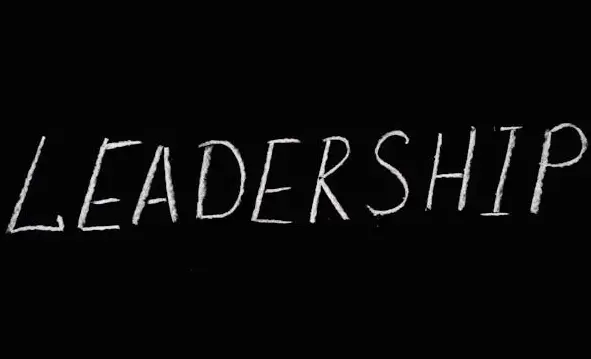5 Key Criteria For Evaluating SCHADS Award Nominees

Each year, the search begins for those special few who have transformed the world through the power of compassion and determination alone. The prestigious SCHADS Award is presented to nominees who exemplify commitment, leadership, and achievement in creating positive change.
However, with so many deserving candidates, how does the selection committee determine who is most deserving of this honor? The committee applies strict criteria to determine the recipients.
This article unveils the five key factors that serve as the litmus test for the committee’s deliberations.
Understanding SCHADS Award
What better way to appreciate exemplary work empowering vulnerable Australians than through the esteemed SCHADS Award? Since its inception, the annual honor has celebrated leaders across crucial yet often undervalued sectors, including social services, home care, disability support, and community programs.
As the nominees embark on this prestigious recognition, one must ask: what criteria do judges use to select the very best among these champions striving each day to respond to diverse needs? An examination reveals the key dimensions evaluated, which include:
Client-Centered Approach
The goal of the sector is to provide effective service to vulnerable communities and individuals. Examiners look at how nominees demonstrate that their clients’ needs and experiences are at the top of their priority list. An ideal nominee has a philosophy that puts dignity, independence and quality of life at the center of everything they do.
They provide personalized services that are tailored to meet diverse needs and goals. Continuous feedback is essential for successful practice. The best nominees actively look for client perspectives to make sure services match real needs.
The most deserving candidates empower their clients as true partners in creating supportive solutions. Top nominees demonstrate that they actively involve clients, adapt to needs and preferences and empower their clients through a client-centric approach.
The SCHADS awards are based on the principle of respect for individuals’ autonomy and quality of life.
Ethical and Transparent Practices
Furthermore, nominees for the prestigious SCHADS Award are assessed based on their strict adherence to principles of integrity, accountability, and responsible care. Given the sensitive work supporting vulnerable communities, examiners look for high standards of ethics, confidentiality, and client rights protection.
Strong candidates provide evidence of prudent governance and compliance systems ensuring patient privacy and dignity are honored. They embrace transparency by openly communicating operational and financial details to develop trust within networks. An ethical approach entailing informed consent, fairness, and open disclosure positions nominees as role models for the sector’s values.

Leadership and Advocacy
What defines exemplary leadership within the pivotal yet challenging SCHADS sectors? Judges will assess a nominee’s ability to motivate and drive positive change as a visionary force within their organization and beyond. An ideal candidate also champions advocacy—who will amplify the voice of vulnerable Australians and bring attention to unmet needs?
The worthiest nominees demonstrate successful experience building strategic partnerships and collaborating with stakeholders to address key issues. Through a track record of principled guidance and marshaling cooperation on policy issues, such individuals emerge as natural champions advocating on behalf of marginalized communities.
Thus, their leadership skills and active policy work ripple far beyond any single initiative. Hence, cementing these dual pillars of leadership and advocacy as core criteria examiners consider when selecting award-winning nominees.
- Impact and Innovation
For organizations and individuals working to aid vulnerable communities, nominees are evaluated based on the extent of positive impact generated through their efforts. Judges seek those who exhibit tangible methods of bettering lives and furthering progress within social services, home care, disability support, and community programs.
Besides demonstrated impact, candidates must display innovative practices, techniques, or solutions that progress the industry’s capacity to tackle society’s diverse requirements. New approaches that challenge prevailing norms and introduce enhanced standards of work are greatly valued.
Only through a proven fusion of exceptional impact and pioneering innovation will nominees distinguish themselves amongst peers and be sincerely competitive for the prestigious accolades of the SCHADS Award.

Collaboration and Partnership
Moreover, when evaluating nominees for the SCHADS Award, judges place a strong emphasis on a demonstrated ability to build strategic relationships. Representatives from social services, disability support, home care, and community programs rely on cooperation to achieve their common goal of aiding vulnerable communities.
Nominees who can showcase a proven track record of bringing together diverse stakeholders through collaborative initiatives, joint projects, and resource-sharing will be highly regarded. An award-worthy nominee will have leveraged expertise from sectors including government, nonprofits, and businesses to enhance the impact of their work.
Strong networks combine diverse assets, magnifying individual capabilities. Partners pool resources to better serve communities through cooperative problem-solving and amplified effectiveness. Skilled relationship-building enlarges nominees’ capacities.

Final Thoughts
Ultimately, nominees must demonstrate excellence across key criteria to stand out. Through recognition, the SCHADS Award celebrates truly exceptional contributions to empowering vulnerable Australians.
For innovative practitioners driven by impact, what better validation than this prestigious honor? A win appreciates invaluable work while inspiring greater achievements. Past recipients motivate best practices, serving as role models.
In these ways, the award advances the sector by honoring leadership that elevates lives and spurs additional progress. No accolade better represents an ongoing commitment to empowerment, innovation, and social justice.
